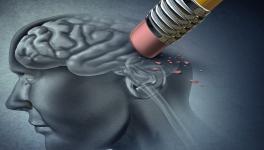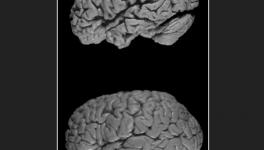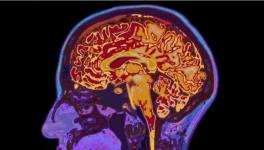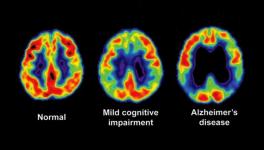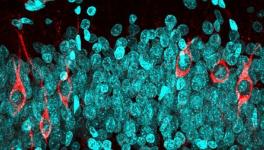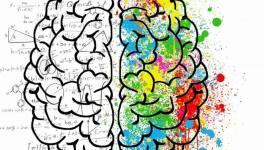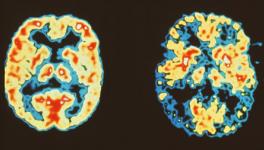Alzheimer’s Research: Can New Study Bring More Clarity Amidst the Debates and Doubts About ‘Amyloid Plaque’ Theory?
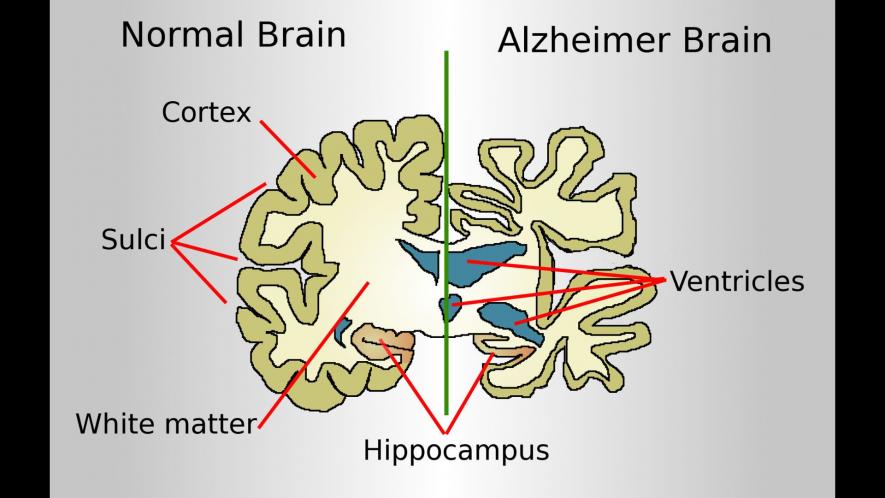
Image Courtesy: Wikimedia Commons
Alzheimer’s Disease (AD) is the most prominent type of dementia, and according to the World Health Organization (WHO), this disease has a high global load, with 6-7 million new cases every year. Being the seventh leading cause of death, dementia is also becoming a major factor of dependency among older people. On the other hand, research suggests that AD has increased significantly during 1990-2019 by about 148%, with cases of 2.92 million in 1990 jumping to 7.24 million in 2019.
Research on AD is also increasing, providing new clues about the disease's genesis, markers of its early diagnosis and also about drugs and therapies meant for its treatment. However, the researches are not out of the debate, especially the ‘Amyloid beta’ theory, considered the most prominent cause of AD. Before going to the debates and apprehensions surrounding this theory, there is something to discuss- some new findings, which are also based on proteins.
In research published recently in the Journal of Science Translational Medicine, scientists claimed to have discovered proteins that are related to the development of dementia, especially AD, when their levels go out of balance. The researchers claimed that when these proteins’ levels are unbalanced in middle age, it can lead to dementia in the later stage. Importantly, all the proteins the researchers discovered are not related to brain functioning, and their study comprises thousands of people in a span of 25 years.
Terming the outside-of-the-brain proteins as peripheral, Keenan Walker, a neuroscientist of the United States National Institute on Ageing in Bethesda, was quoted in the article about the study by Lilly Tozer. He said, “We’re seeing so much involvement of the peripheral biology decades before the typical onset of dementia.” Keenen Walker is also the lead author of the research publication.
The team collected blood samples from 10,000 participants of middle age (45-65 years old) over 25 years and searched for any misbalance of proteins, that is, the presence of proteins at a much higher or much lower level than normal. They found that 32 proteins are linked to a rise in the chance of dementia in later life.
The participants of the research returned for examination six times over the time period of 25 years. During this time, the researchers found that one out of five developed dementia. The dysregulated levels of the proteins were found in the brain tissues of the participants who died having AD and also in the blood of those still living, writes Lily Tozer.
Out of the 32 proteins the researchers found crucial for developing AD, some belong to the function of the immune system. At the same time, some are also involved in proteostasis, which balances the levels of proteins.
It is worth noting that it was also found previously that the immune system function is also linked to AD, as the research by Jin-Tai Yu suggests people having immune diseases may be vulnerable to developing AD in later life.
“There is still a long way to go in understanding exactly how any of these proteins fit into the physiology of dementia, and a much better understanding of the underlying mechanisms is needed before people can benefit. Such insights could potentially open doors for early interventions,” Nicholas Seyfried was quoted as saying in Lilly Tolez’s article.
The findings are suggestive that other proteins outside the brain are linked to the development of dementia and, for that matter, AD might exist, indicating that the disease is not restricted to one or two specific brain proteins.
The Amyloid Theory and the Surrounding Debates
The amyloid theory has long been considered the hallmark of AD development, and apparently, this has become the basis of many drug development strategies. The research paper in Nature in 2006 became prominent over time and saw over 2000 citations. This paper linked amyloid-beta accumulation in the brain to memory loss and AD.
The amyloid-beta is a protein, and in ageing brains, a large accumulation of it leads to plaque formation, which impairs memory formation- the core of the theory that drove AD research. However, over time researchers have obtained findings which suggest that it may not be the full truth.
In a research published in the journal Alzheimer’s & Dementia in December 2022, the researchers claimed that higher levels of Amyloid-beta in the brain is a natural process and may not always be a sign of AD. However, the researchers said that Amyloid-beta's soluble form is unrelated to AD progression, whereas the fibrillar form is associated with the disease.
Similarly, another research published in the Journal of Alzheimer’s Disease researchers claimed to have found that depletion of the amyloid-beta 42 (this is the functional form of amyloid-beta protein) is more harmful than the number of insoluble amyloid plaques formed in the brain as far as the progression of AD is concerned. In an article about the research published in The Conversation, three of the researchers of the study wrote, “When amyloid-beta protein accumulates in the form of plaques (insoluble clumps), the original soluble form of the protein, which performs important functions in the brain, is consumed and lost. Some studies have shown that reduced levels of soluble amyloid-beta – called amyloid-beta 42 – have led to patients having worse clinical outcomes.”
Moreover, in July last year, Science reported dozens of research articles on AD altering images and also duplication, which supported the leading Amyloid-beta theory. The article author Charles Piller wrote, “A neuroscience image sleuth finds signs of fabrication in scores of Alzheimer’s articles, threatening a reigning theory of the disease.” This, as experts opine, increased the doubts about AD progression, especially the leading theory.
Undergoing AD research will produce more findings, which may bolster the new findings, and it is expected that with new evidence, the drug development approaches and therapeutic means may witness changes in future. However, one thing should be remembered: AD has many aspects to be unveiled by scientists, and there needs to be precautions in following a particular theory.
Get the latest reports & analysis with people's perspective on Protests, movements & deep analytical videos, discussions of the current affairs in your Telegram app. Subscribe to NewsClick's Telegram channel & get Real-Time updates on stories, as they get published on our website.









